Search
Search Results
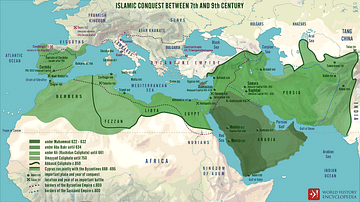
Image
Islamic Conquests in the 7th-9th Centuries
A map illustrating the rise and expansion of early Islamic caliphates from the Prophet Muhammad until the 9th century.

Definition
Islamic Caliphates
Caliphate (“Khilafat” in Arabic) was a semi-religious political system of governance in Islam, in which the territories of the Islamic empire in the Middle East and North Africa and the people within were ruled by a supreme leader called...

Article
Early Muslim Conquests (622-656 CE)
Islam arose as a religious and socio-political force in Arabia in the 7th century CE (610 CE onwards). The Islamic Prophet Muhammad (l. 570-632 CE), despite facing resistance and persecution, amassed a huge following and started building...
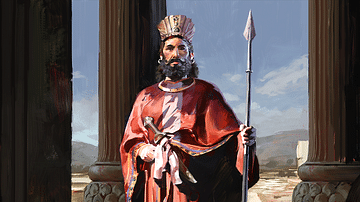
Article
Cyrus the Great's Conquests
The estimated expanse of the Achaemenid Empire at its height c. 500 BCE was two million square miles. Most of this territory was conquered by Cyrus the Great, the founder of the Empire, who reigned from 559 to 530 BCE, the fourth king in...
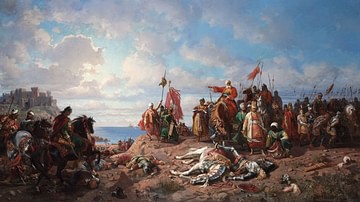
Article
Battles & Conquests Of The Ottoman Empire (1299-1683)
Spanning across three continents and holding dominance over the Black and Mediterranean Seas, the Ottoman Sultanate (1299-1922) was a global military superpower between the 15th and 17th centuries. From the point of its inception in 1299...

Video
Art This Week-At the Dallas Museum of Art-Inca: Conquests of the Andes
This week, we visit the Dallas Museum of Art and our interviewer, Aimee Cardoso, speaks with The Ellen and Harry S. Parker III Assistant Curator of the Arts of the Americas, Kimberly Jones, about the exhibition, Inca: Conquests of the Andes/Los...

Image
Expansion of Early Islamic Caliphates
This map shows the expansion of the Islamic Caliphates in the 7th and 8th Centuries CE: 1. Dark Shade: Expansion under the Prophet Muhammad, 622-632 CE. 2. Medium Shade: Expansion under the Rashidun Caliphate, 632-661 CE. 3. Light Shade...
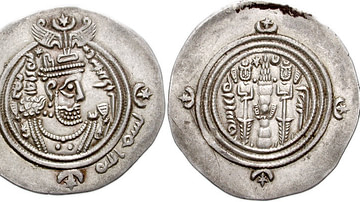
Image
Rashidun-era Islamic Coin
Islamic coin of Arab-Sasanian origin. From Bishapur, Persia. Made c. 651-661 CE, during the Rashidun Caliphate. Left: Sasanian style bust imitating Kosrau II (r. 590-628 CE). Right: Fire altar with ribbons and attendants, star and crescent...
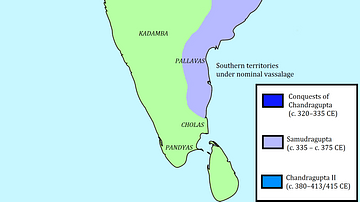
Image
Gupta Empire and Conquests
This map shows the conquests made by Gupta rulers in the 4th century CE and early 5th century CE. Of these three rulers—Chandragupta I, Samudragupta and Chandragupta II—Samudragupta’s conquests are the most important and the most extensive...
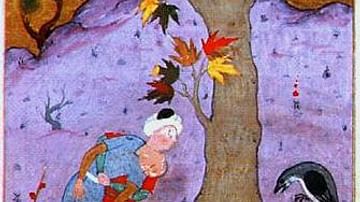
Image
Islamic Depiction of Cain and Abel
Cain burying his brother Abel, illustration from an Islamic illuminated manuscript of the Stories of the Prophets, 11th century CE. Cain and Abel were sons of the first humans Adam and Eve in the biblical Book of Genesis. Cain was a farmer...